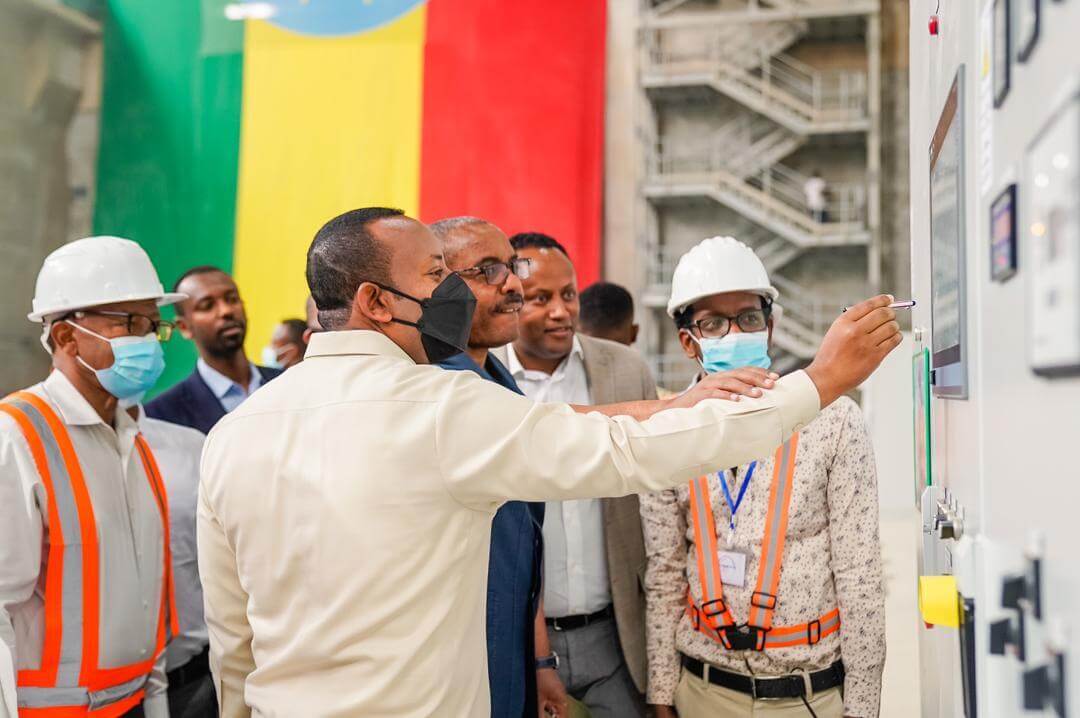Ethiopia on Sunday started generating electricity from the controversial Grand Ethiopian Renaissance Dam (GERD) in the Blue Nile for the first time, a move that has drawn furious reactions from Egypt.
Authorities said that only one out of the 13 turbines of the dam started producing electricity and that they expect the second turbine to start operating in months. Once completed, GERD will be Africa’s largest hydropower project, with a total capacity of 5.15 Giga Watts.
Ethiopian Prime Minister (PM) Abiy Ahmed attended the highly-publicised inauguration ceremony of the dam, which is located in the northwestern Benishangul-Gumuz region. “Congratulations to all Ethiopians today as it is the dawn of light for Ethiopia,” Abiy proclaimed.
Today, Africa's largest power plant, the GERD’s first turbine began generating power. This is a good news for our continent & the downstream countries with whom we aspire to work together. As Ethiopia marks the birth of a new era, I congratulate all Ethiopians! pic.twitter.com/KoMEgIcGVk
— Abiy Ahmed Ali 🇪🇹 (@AbiyAhmedAli) February 20, 2022
Announcing that GERD has officially begun operating, Abiy stressed that it “is good news for our continent and for those of us in the lower riparian countries who want to work together.”
The PM noted that the project will greatly contribute to Ethiopia’s economic development. “Ethiopia’s main interest is to bring light to 60% of the population who is suffering in darkness, to save the labour of our mothers who are carrying wood on their backs in order to get energy,” he said.
As per estimates, only 46% of Ethiopians have access to regular electricity, while the remaining 54% have either irregular or no access to electricity and mostly rely on wood, coal, and fuel to meet their daily needs. Once completed, GERD is expected to provide millions of Ethiopians with water and power.
Former Ethiopian Water and Irrigation Minister Seleshi Bekele said on Sunday that, apart from providing Ethiopians with regular electricity, the dam can lead to “enhanced power generation in downstream countries—Egypt and Sudan—in existing dams” and “safeguard against flood and drought.”
“GERD should be the source of cooperation, not conflict, for shared prosperity not bringing scarcity, regional integration,” Bekele reasoned.
#Ethiopia Mega dam built over the Blue Nile set to start generating electricity today. pic.twitter.com/tx9nW5SYzP
— Kalkidan Yibeltal - ቃልኪዳን ይበልጣል (@Kal_KidanY) February 20, 2022
However, Egyptian authorities condemned Ethiopia’s move and said that it was announced “unilaterally” without consulting Egypt or Sudan. The Egyptian Foreign Ministry said that the move to begin electricity production is a violation of the 2015 ‘Declaration of Principles’ (DoP) signed by all three countries.
The DoP, which outlines ten principles, calls on Addis Ababa to inform Cairo and Khartoum before undertaking any operations regarding GERD. Furthermore, the 2015 principles stress the importance of mutual cooperation, fair use, and the peaceful settlement of the dispute.
Egypt relies on the Nile River for 96% of its freshwater needs. Moreover, almost 95% of its population lives within 12 miles of the river, using its resources for agriculture, industrial production, and sewage treatment. In this respect, Ethiopia’s construction of GERD on the Blue Nile tributary, which originates in Ethiopia’s highlands and provides the river with 85% of its total water flow, is perceived as a major national security threat. Egypt fears that the dam will decrease its supply of Nile water, and that any diversion would lead to significant evaporation and water loss, especially during the dry season.

